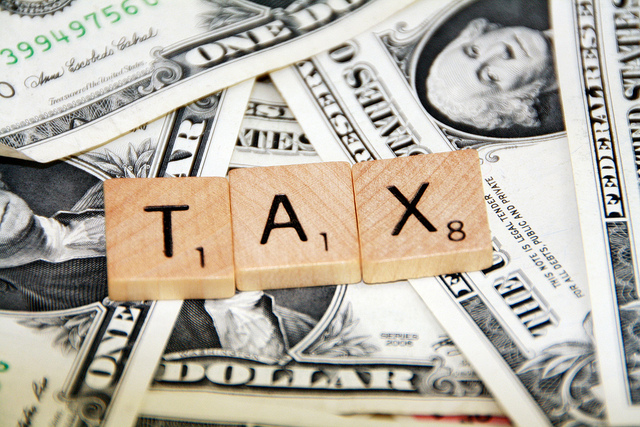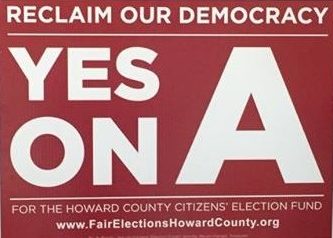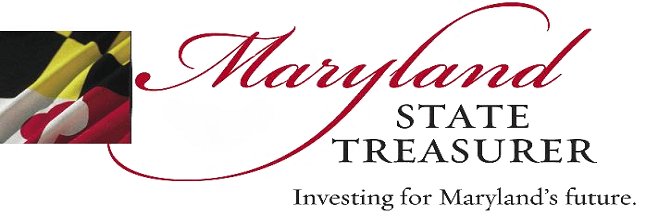By Rebecca Lessner
For MarylandReporter.com
Gov. Larry Hogan and even the Democratic leadership were crowing that they passed a balanced budget with no new taxes. But that wasn’t for lack of trying by some legislators.
Hogan said in his State of the State address, “The people of Maryland cannot afford for us to continue on the same path of more spending, more borrowing, more taxes and politics as usual.”
House Minority Whip, Del. Kathy Szeliga, R-Baltimore and Harford, is a member of the House Environment and Transportation committee, which shot down several bills proposing new taxes this session.
“This has been a great session for taxpayers…taxes got no traction, a definite result from the election in November,” said Szeliga. “The taxpayers should be really happy.”
Below we look at which major tax or fee changes may be signed into law and which were killed in the legislature, at least this year.
“Tax relief is proving to be a tough concept for too many in Annapolis to embrace,” stated Szeliga in a written update during session.
Chicken Tax
The “Chicken Tax,” or “Bay Equity Tax,” proposed a five-cent fee on every chicken provided by poultry owners to farmers in the state, totaling an estimated $15 million annually. As proposed, the bill would have shifted bay restoration funding and resulted in a spending cut to cover crops and increased funding for septic upgrades.
The fee would only apply to ‘poultry integrators,’ the term for the name given to companies hiring farmers to raise their chickens. There are about five integrators who contract with more than 700 farmers on the Eastern Shore, according to the Department of Legislative Services.
As chicken manure run-off is argued to be a major cause for high levels of phosphorus in the Chesapeake Bay, this bill would repeal using sewage fees to fund cover crops for bay restoration and instead use the nickel-a-chicken fee for cover crops.
However, Del. Moon withdrew the bill from the House Environment and Transportation committee after he realized he would not have enough favorable votes.
“I wanted that bill to go through a full hearing, so that the underlying problem of taxpayers subsidizing poultry pollution would stay on the radar,” said Moon.
The Maryland Department of Agriculture and Maryland Grain Producer Association opposed the bill, with broad concerns on the impact of the bill on the cover crop program, which is already implemented to meet water quality goals and the impact on local farmers. The cover crop program would get funding from the new fee instead of the current system of using 40% of bay restoration fees collected from septic users. It would have resulted in a net loss of $4.9 million of funding for cover crops in fiscal 2016 and $4.6 million annually for subsequent years.
As a result, 100% of the septic fees would be spent on septic upgrades and the state would spend about $11.2 million more on septic upgrades.
Tobacco Tax
Some lawmakers argued the “Tobacco Tax,” or the “Healthy Maryland Initiative,” was actually a “public health issue” and not necessarily a tax “for spending.” The bill died in committee.
“(We should) increase prices for tobacco to drive down the usage,” said Bill Sponsor Bill Sponsor Sen. Richard Madaleno, D-Montgomery. “A constitutional majority of the House and the Senate have both pledged to stand with this bill. We have people on record, more than enough to raise the tobacco tax by one dollar.”
The bill would increase the current tobacco tax from $2 to $3 a pack, while also increasing the wholesale taxable price on Other Tobacco Products (OTPs) from the current 30% to 76%.
This equals out to $95.3 million in general fund revenues for fiscal year 2016.
Fred Parsons of the George J. Falter Company, a company that supplies convenience stores in Maryland, said during the committee hearing, “When all the (tobacco) taxes started increasing, we started to pursue business in Virginia, Pennsylvania and in Delaware because that’s where the sales went.”
Parsons along with the Maryland Association of Retailers felt SB 37 would accidentally increase black market sales of tobacco products and also drive honest business owners out of Maryland.
However, in Szeliga’s words the bill “never saw the light of day,” and was “stuck” with its sister bill in committee.
“We’ll be back again next year making that push,” said Madaleno. “Hopefully Gov. Hogan will view it, as many of his Republican colleagues across the country are, as an important public health measure.”
Bag Tax
The “Bag Tax,” or the “Community Cleanup and Greening Act of 2015,” would ban plastic bags on “most retailers” statewide, with a 10-cent fee put on the sale of paper bags.
“It’s an elegantly simple idea…Over 180 municipalities around the country already do this,” said bill sponsor Del. Brooke Lierman, D-Baltimore City. “They recognize that we are spending millions in clean up costs, cleaning up litter all over our streets, our waterways and our playgrounds.”
Lierman believes the reduction of bag usage would benefit retailers as well, as a statewide ban would clear up discrepancies amongst counties, as Montgomery County considers legislation for a local ban.
The American Progressive Bag Alliance opposed the bill in the committee hearing, claiming it was a tax on groceries and the several municipalities that have enacted the tax are in the process of repealing it due to voter outcry.
HB 551 received an unfavorable report by the House Environment and Transportation committee.
Lierman plans on revisiting the bill next session if she receives the support necessary for it.
Also being held back by the Environment and Transportation committee was the “Bottle Tax,” or the “Maryland Redeemable Beverage Container and Litter Reduction Program,” which would create a committee to regulate a 5-cent tax on bottled beverages that could be redeemed if the bottle was returned.
Hotel Tax
The tax versus fee debate was largely reinforced by the online travel site “Sales and Use Tax” bill, which suggests that online travel sites are skirting paying full Maryland taxes.
The bill is awaiting the signature of the governor, having passed both House and Senate.
With Hogan’s promise of “no new taxes,” there are questions over whether signing the bill will break that promise.
“This will tell the people of Maryland a lot about how Gov. Larry Hogan makes decisions,” said Madaleno, bill sponsor. “Is he going to sit down and take a hard look at the public policy, or is he simply going to be manipulated by a PR campaign generated by people on the right, who try to undermine good public policy around the country.”
Online travel sites such as Orbitz and Expedia say the bill would indeed create a new tax, charging a sales tax on their booking fee.
“I don’t know why he would want to pick this fight,” said Madaleno, believing the governor will sign the bill with so much support from local hotels.
Rain Tax, is it truly a repeal?
Also on the governor’s desk is the repeal of the 2012 Stormwater Remediation Fee, or more publicly known as the “rain-tax.”
“This bill is not perfect, but it does change ‘you shall charge a tax’ to ‘you may charge a tax’,” Szeliga said.
The repeal will stop the requirement of a tax to meet the federal stormwater management requirements, but counties will decide individually how to fund those programs.
SB 863 was introduced by Senate President Mike Miller, replacing the governor’s similar version.







The Maryland far left Democratic Party, their sycophant legislators and nanny state organizations still suffer from the O’Malley Virus (“tax and spend”), treating Maryland taxpayers as their personal ATMs!
Good for the Governor and his campaign promise – no new taxes (so far). As for Sen. Madaleno, it is a bit presumptuous when he implies that all good policy emanates from the “left” and that the “left” is not immune to PR campaigns. Neither party can be considered to be virtuous in this regard.
And Combined Reporting did not pass, which would be a new tax on multi-state companies.